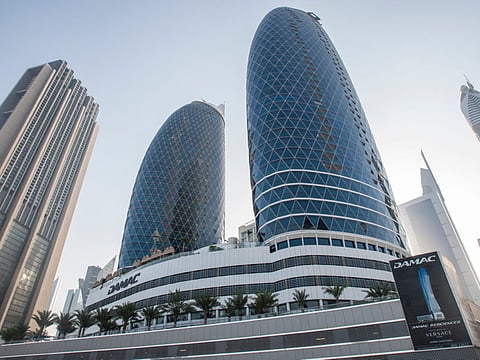Control is a good thing for Dubai’s developers
With a handful of players controlling supply & pricing, sharp swings are remote

Dubai: With a handful of Dubai’s developers in full control of supply and pricing, the chances of a sudden correction breaking out in the property marketplace is remote, according to the Damac Group chief.
“Three of the government owned or supported master-developers — Nakheel, Dubai Properties and Emaar — and us as a privately-held entity currently represent anywhere up to 90 per cent of the off-plan supply that will be built in the medium term,” said Hussain Sajwani, Chairman of Damac. “With that kind of control in place and which also extends to setting the pricing levels, the chances of crazy things being set off and upsetting the market dynamics are remote.
“All of the leading developers will have mature responses to handle any shifts in market forces. The market itself has matured.”
This is a nice contrast to what the situation was in late 2008 when there were a multitude of private developers, many of them poorly or undercapitalised, launching projects and for whom the building part of it was a distant second in terms of priority. And when the downturn hit, those buyers found no takers for properties which had only ever existed on paper.
“Now, only those projects which are suitably financed have a chance of making it to the sales stage,” said Sajwani. “Here too, the off-plan launches have been dominated by the big names and all of whom have got the track record of project completions in the last four years.
“Such control is to the good — investors tend to get very nervous when shifts happen in the local economy. This was what happened on the local stock markets recently — investors started worrying about the slide in oil prices and engaged in share sell-offs. And then in a matter of days, they were back in the market and helping it recover much of the lost ground.
“All through those days or wild swings in the stock market, the oil prices were still going down ... it didn’t suddenly shoot up to $100 a barrel for investors to get back into buying stocks.
“It’s a good thing that such pendulum moves did not happen in the property market. It’s also why control of delivery is so vital.”
By common consent, Dubai’s off-plan property sales have been on an even keel in recent weeks. “Maturity” is a word that has been getting mentioned a lot during this period, as investors bide their time to go in for buys where they are reasonably sure about yield gains.
“The biggest plus for Dubai is still the fact that yields average 7-8 per cent compared with a 3 per cent in New York, London’s 3-3.5 per cent and Singapore’s 4 per cent,” said Sajwani. “Moreover, there aren’t that many investment destinations around us with the political stability that the UAE can offer.
“I don’t think the rouble and the consequent drop in Russian buyer activity will be too troublesome for Dubai realty. On our own projects, they can’t be more than 1 per cent of our buyers.”
On whether Damac would consider taking on more projects outside of Dubai — in the manner of spreading its bets — Sajwani said: “There is no magic formula on what a developer should have in one market and outside. We recently delivered our first project in Saudi Arabia (a tower in Jeddah) and have got two projects in Riyadh. It felt good to get the Jeddah project out of the way — it’s not exactly a place where it’s easy for a private developer to deliver a quality venture.
“Qatar too has seen us mobilise projects — going forward it’s assured that part of our revenues will come non-Dubai exposures. Whether that is 15 or 20 per cent of the overall portfolio depends on the market situation and on a year by year basis.”
Sign up for the Daily Briefing
Get the latest news and updates straight to your inbox



